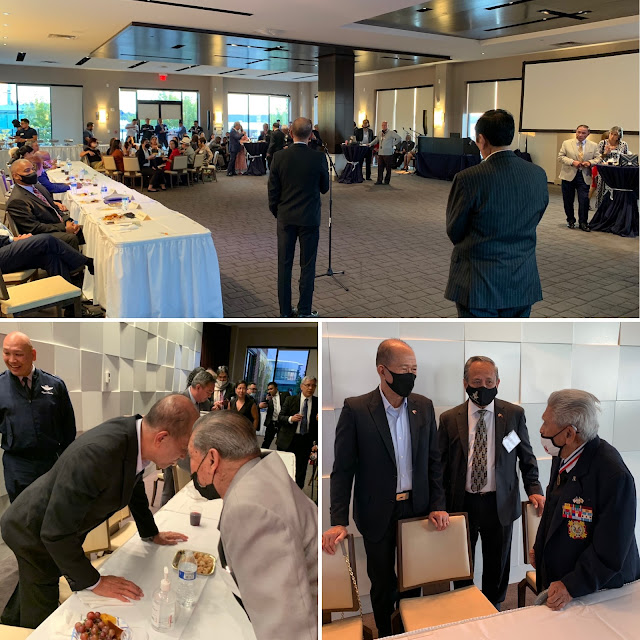Students from the Philippines completed recently a course at the Naval Small Craft Instruction and Technical Training School at John C. Stennis Space Center in South Mississippi.
NAVSCIATTS Cmdr. Don Speights and Philippine Defense Attache Capt. Salvador Henry Quinto (PN) served as hosts and addressed the 49 graduates from the Bahamas, Bangladesh, Guyana, Malaysia, the Philippines and Thailand.
In his address, Capt. Quinto stressed the development of the modern soldier. “There are some realities we need to face,” he explained, “Gone are the days that men and women turned into soldiers and sailors by the mere display of sheer strength and their willingness to fight.”
“While most of us joined the service driven by a spectrum of reasons - like patriotism, bloodlines, career, rewards, dreams or even adventure…Today’s military now needs dedicated professionals, responsible experts, and men and women with various skill sets and competencies,” Capt. Quinto averred.
Cmdr. Speights stressed that strengthening global relations and building partner capacity will continue to be a priority for him and his staff.
“While the forefront of our shared global struggle over the past year has focused on Covid-19, we realize global challenges that threaten the security of all our nations and existed prior to the pandemic such as terrorism, illicit drug networks, human trafficking, organized crime, and great power competition,” he explained.
“We must not forget, regardless of our situations and where we are from, we can only counter these challenges by working together. Your service and continued dedication to your countries and international partnerships will no doubt ensure our success against these shared global challenges.”
NAVSCIATTS, which was originally formed as a US Coast Guard mobile training team in 1961 in Rodman, Panama, trains for foreign special operations, combat support, and combat service support.
This semester, students received training in six of the command’s 10 formal courses of instruction, including diesel and outboard motor maintenance, tactical communications, welding and applied repairs, coastal patrol, and UAS (unmanned aircraft) planning and operations.
“Warfare of this new century requires membership in a profession that shares organic unity and consciousness in various disciplines that make us special and distinct apart from the ordinary men,” Capt. Quinto said.
Since 1963, more than 13,000 international security force professionals from 123 countries have trained with NAVSCIATTS.
Photos courtesy of NAVSCIATTS



